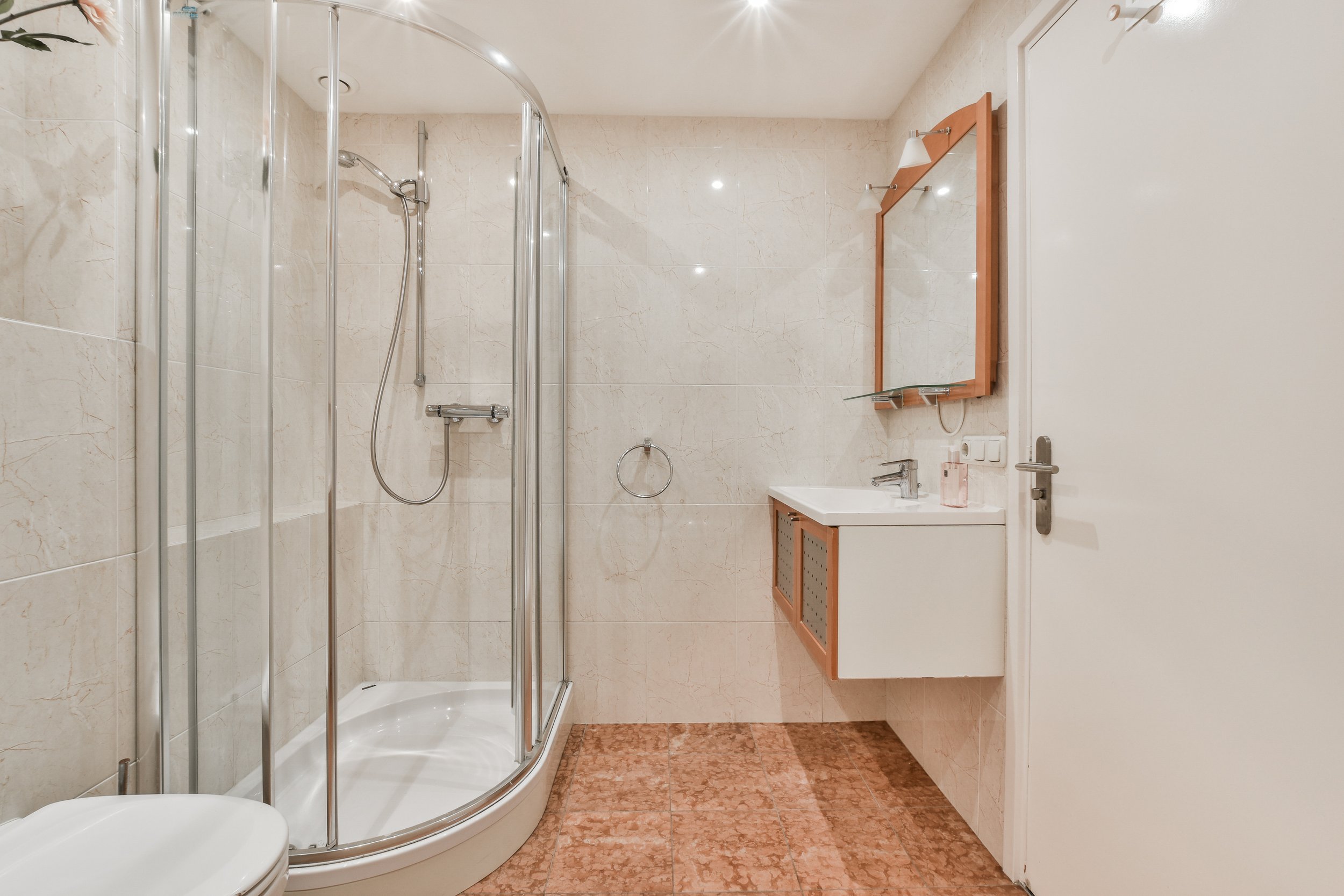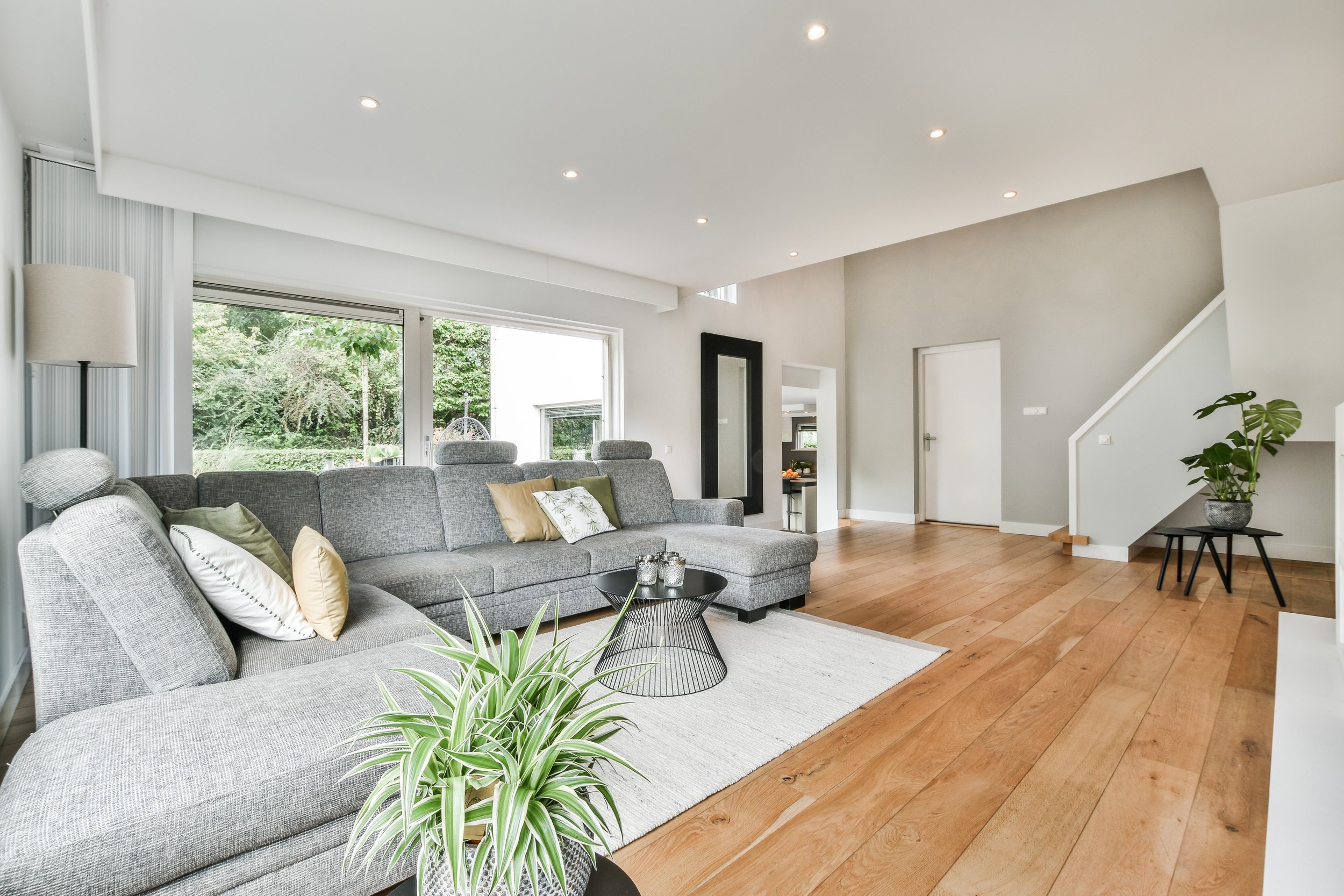
Do I Need A Contractor To Finish My Basement In Alpharetta, GA?
Finishing a basement in Alpharetta sounds simple at first: frame a few walls, run some wires, pick nice flooring, and call it done. Then the realities of permits, inspections, moisture control, egress, duct sizing, and load paths enter the picture. That is where a local contractor proves valuable. For many homeowners in North Fulton and the North Atlanta suburbs, hiring finishing basement contractors saves months of guesswork and prevents costly corrections at inspection.

Below is a clear look at what a homeowner can DIY, where a licensed contractor is required, and how a basement finish in Alpharetta, GA moves from idea to signed-off project that adds livable square footage and real value.
What Alpharetta Requires: Codes, Permits, and Inspections
Alpharetta follows Georgia Residential Code with local amendments. For a finished basement with new walls, electrical, plumbing, or HVAC, a building permit is required. The city will check plans for layout, ceiling height, egress, smoke and CO detector placement, arc-fault and ground-fault protection, and stair safety. If you add a bedroom, an egress window or exterior door with code-compliant size and sill height is mandatory. Expect staged inspections: framing, rough electrical and plumbing, insulation, then final.
Homeowners sometimes ask if a handyman can handle it under the radar. Unpermitted work often surfaces during appraisal or sale, and lenders flag it. Fixing it after the fact can cost more than doing it right the first time. A contractor familiar with Alpharetta and Fulton County submittals will sequence the permit package, schedule inspections, and keep the project moving.

Where DIY Makes Sense vs. Where It Does Not
Painting, basic demo, and simple shelving fit a confident DIYer’s skill set. Flooring installation is also doable if the slab is dry, flat, and you choose a product suited for below-grade spaces. Design decisions such as room layout, lighting mood, and storage features benefit from homeowner input.
Electrical, plumbing, gas lines, structural changes, and new HVAC runs require licensed trades in Georgia. An owner can physically perform certain work in a primary residence, but most residents still hire pros because the work must pass code and be safe long term. The biggest pitfalls happen out of sight: overloaded circuits, undersized returns, trapped moisture in walls, or a beam cut to fit a can light. A contractor coordinates licensed trades, pulls the correct permits, and documents everything.
Moisture and Mold: The Basement-Specific Risks
Alpharetta sits in a humid climate. Even a dry-looking basement can push moisture through concrete during summer. Finishing over that without preparation invites mold. A contractor evaluates bulk water entry, vapor drive, and slab conditions.
Standard steps include sealing cracks, confirming positive grading and downspout extensions, adding a continuous capillary break below bottom plates, and selecting the right wall assembly. Faced fiberglass pressed against concrete is a common mistake. In this market, rigid foam against the foundation with framed walls inboard is a proven approach. Dehumidification sizing matters as well; many basements in North Atlanta need a dedicated unit set to 45 to 50 percent relative humidity in summer.
Bedrooms, Egress, and Safety
If a homeowner plans a guest suite or teen room, an egress window or door is non-negotiable. Alpharetta inspectors will check clear opening size, sill height, ladder wells, and path to grade. Smoke and CO detectors must be interconnected and placed per code. Stair rises, treads, and handrails often need upgrades in older homes. A basement finishing contractor handles these details so the space is safe and legal, which also protects resale value.
Cost Ranges in Alpharetta and What Drives Them
For a straightforward finish with a family room, a half bath, and storage, many Alpharetta projects land between $55 and $95 per square foot, depending on finishes. Add a bedroom with egress and a full bath, and the range often runs $85 to $150 per square foot. High-end bars, home theaters with acoustic treatment, or complex layouts can exceed that.
Big cost drivers include bathroom count and location relative to the main stack, steel beam or post adjustments, egress excavation, custom millwork, and premium flooring. Good contractors present options with line-item clarity so a homeowner can trim in one area and spend where it matters.
Timeline Reality: From First Visit to Final Inspection
A typical path runs like this. The contractor assesses structure, moisture, and utilities, then creates a layout and scope. Permitting in Alpharetta can take one to three weeks, faster with a complete submittal. Build time for a 700 to 1,000 square foot finish often runs eight to twelve weeks, plus inspection days. Material lead times affect the schedule. Doors, electrical trims, and shower glass can add a week or two if ordered late. Tight sequencing keeps electricians, plumbers, and drywall crews from piling on each other.
Why Homeowners Call Finishing Basement Contractors Instead of Going It Alone
A basement finish looks simple on the surface, but one decision affects the next. Framing layout influences duct routing, which influences ceiling height, which affects lighting and sprinkler coverage if present. The contractor’s role is to plan the whole system so the finished space feels like part of the home, not an afterthought.
Contractors also protect homeowners from expensive rework. A frequent Alpharetta example: a homeowner lays luxury vinyl plank directly on a slab with hidden moisture, then sees edge cupping by the first summer. Another common one: adding too many can lights on a single dimmer without counting inrush current, which causes early failures. These are preventable with planning and the right specs.
Design Choices That Work Well Below Grade
Ceiling decisions shape the feel of a basement. Drywall ceilings look clean and maximize headroom, but a well-designed drop ceiling with quality tiles can provide access to valves and junctions without feeling commercial. In areas with many pipes or cleanout access, a drop zone can be limited to utility corridors while the rest stays drywall.
Flooring should handle moisture and minor slab movement. Many Alpharetta homeowners pick LVP or engineered vinyl plank for durability and easy care. Stain-grade stairs, warm LED color temperatures, and proper zoning on the HVAC help the space feel connected to the main floors. Sound control matters if a media room sits under bedrooms; acoustic insulation plus resilient channel or sound clips can reduce noise transfer.
The Permit Packet: What Inspectors Expect to See
Inspectors want a scaled floor plan, notes on ceiling heights, window sizes, smoke and CO placement, electrical circuit counts with AFCI and GFCI locations, plumbing fixture counts and venting, and any structural notes. If a load-bearing wall or post moves, an engineer’s letter is required. Submittals that answer these questions upfront speed approvals. Contractors with Alpharetta experience know which details prompt redlines and how to resolve them quickly.
Red Flags When Interviewing Basement Contractors
Homeowners in Alpharetta can protect their budget and schedule by watching for a few warning signs. A price that is far lower than others often omits permits, egress compliance, or adequate moisture control. Vague allowances for tile, lighting, or cabinets can shift costs late. A contractor who cannot explain how they handle inspections or who suggests skipping them invites future problems. Solid references in Alpharetta, Johns Creek, Roswell, and Milton, plus photos of recent code-compliant work, are a better sign.
What a Good Basement Finish Adds to an Alpharetta Home
Done right, a finished basement brings flexible square Heide Contracting: basement finishing services in Atlanta, GA. footage. Many homeowners gain a quiet office, a play zone that contains clutter, a guest suite that feels private, or a workout space that saves a gym trip. Appraisers in North Atlanta generally credit finished basements, and buyers respond to clean, dry, code-compliant spaces. The sweet spot is durability and comfort without overspending on features that do not fit the home’s value.
A Simple Way to Decide: DIY or Hire
Use this quick check to decide if a contractor makes sense for your Alpharetta basement:
- The plan includes a bedroom, bathroom, or a bar with a sink.
- Ceiling height is near the minimum and ductwork needs rerouting.
- Past water signs exist or the slab reads high on a moisture test.
- You want permits, inspections, and resale value without headaches.
- Your timeline is tight and you need a predictable schedule.
If two or more apply, hiring finishing basement contractors is the safer, more efficient path.
How Heide Contracting Handles Alpharetta Basements
Heide Contracting focuses on finished basements across North Atlanta, including Alpharetta, Milton, Johns Creek, Roswell, and Sandy Springs. The team starts with a moisture and structure walk-through, then offers clear layouts with budgets tied to real products. They manage permits with Alpharetta, schedule each inspection, and keep an open calendar so owners can see what is happening each week. Homeowners see progress without chasing trades or reading code books.
Most projects begin with a design and scope meeting in the home. From there, homeowners receive a detailed proposal with line items for framing, electrical, plumbing, HVAC, insulation, drywall, flooring, paint, and trim. During construction, dust control, daily cleanup, and simple communication keep the space livable for the family upstairs.
Ready to Talk About Your Basement?
If the goal is a code-compliant, comfortable basement that feels like it has always belonged in the home, a local specialist is worth it. For homeowners comparing finishing basement contractors in Alpharetta, GA, Heide Contracting is available for a no-pressure site visit. Share ideas, walk through moisture and egress options, and see a clear plan with real numbers.

Request a consultation today to get your Alpharetta basement finished the right way—on code, on budget, and ready for family use.
Heide Contracting provides renovation and structural construction services in Atlanta, GA. Our team specializes in load-bearing wall removal, crawlspace conversions, and basement excavations that expand and improve living areas. We handle foundation wall repairs, masonry, porch and deck fixes, and structural upgrades with a focus on safety and design. Whether you want to open your floor plan, repair structural damage, or convert unused space, we deliver reliable solutions with clear planning and skilled work. Heide Contracting
Atlanta,
GA,
USA
Phone: (470) 469-5627 Website:
https://www.heidecontracting.com,
Basement Conversions
Instagram: @heidecontracting
Facebook: Heide Contracting